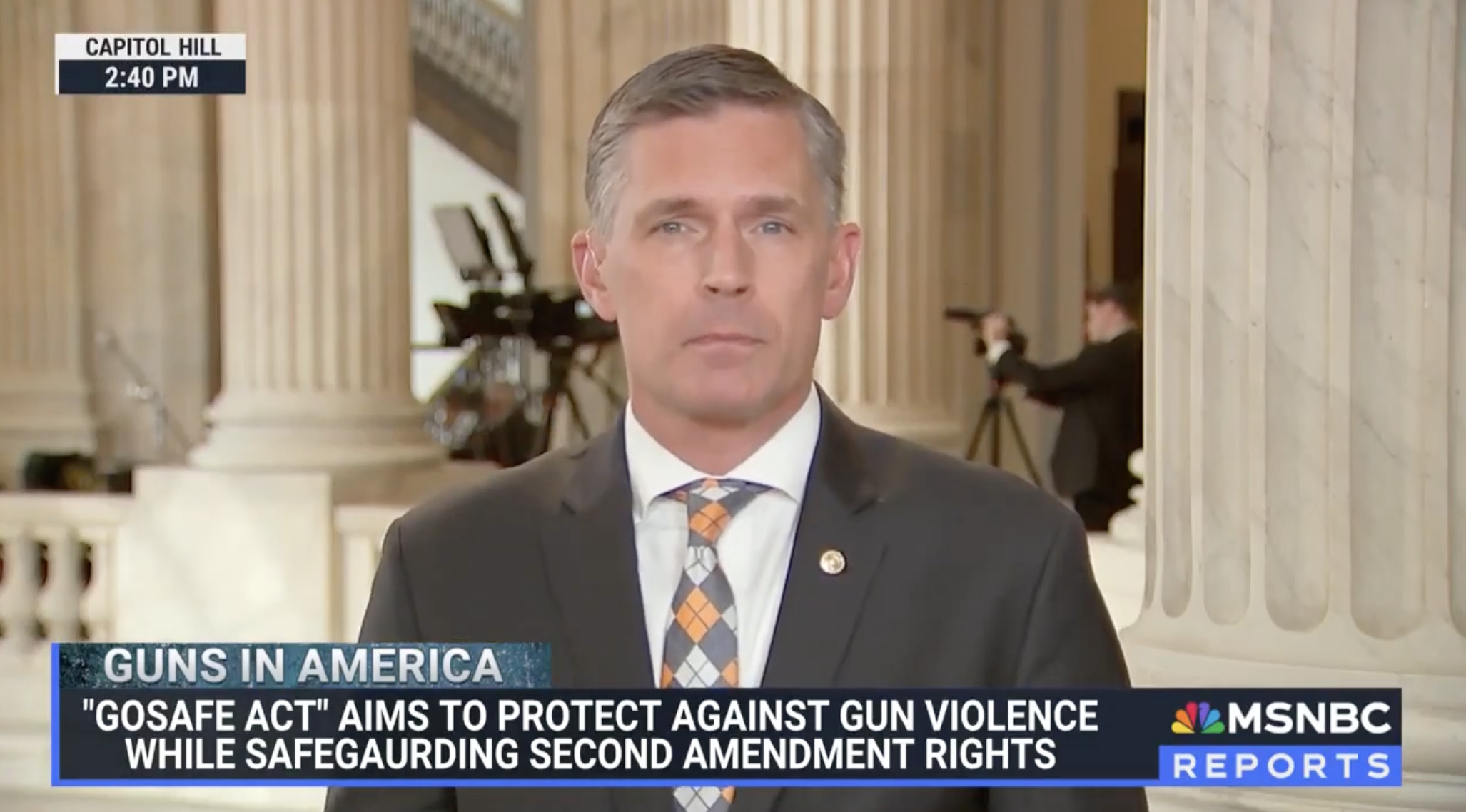ICYMI: Heinrich Joins MSNBC to Discuss Newly Introduced Gun Legislation
Heinrich’s GOSAFE Act aims to reduce gun violence in America and save lives while protecting Americans’ Second Amendment Right
WASHINGTON — U.S. Senator Martin Heinrich (D-N.M.) joined Chris Jansing on MSNBC Wednesday to discuss his GOSAFE Act, legislation to protect communities from gun violence, while safeguarding Americans’ constitutional right to own a firearm for legitimate self-defense, hunting, and sporting purposes.
VIDEO: U.S. Senator Martin Heinrich (D-N.M.) joins MSNBC to discuss his newly introduced GOSAFE Act, December 6, 2023.
Heinrich’s full conversation with MSNBC’s Chris Jansing is transcribed below:
Jansing:
At a time when Congress just seems to get more and more divided, a group of Democratic senators have proposed a new bill to curb gun violence.
The GOSAFEAct aims to regulate the internal mechanisms of semiautomatic firearms to make those weapons less lethal without having to outright ban them.
Joining me now is the lawmaker spearheading this effort, Martin Heinrich. Senator, walk us through exactly what this bill would do. How would it change semiautomatic weapons?
Heinrich:
What we've seen time and again, and what we often term assault rifles is the combination of a large capacity magazine with a gas-operated action that can function very, very quickly. It's that combination of being able to fire very quickly and reload very quickly that really contributes to the mass scale of some of the shootings that we're seeing.
We limit all of that in a way that's consistent with existing court rulings, and we see this as an opportunity to hopefully turn back the clock on what has been a horrible rash of mass shootings in recent years.
Jansing:
You're not necessarily the most obvious person for this, if I can say.
You're a lifelong gun owner in a state where a lot of people have guns and that permits open carry of loaded firearms.
But also, in 2021, New Mexico had the third highest gun death rate among states. It's a situation you know well. Why this, why now in particular?
Heinrich:
I really started working on this approach after the Las Vegas mass shooting, which was one of the worst we had ever seen.
The approach was to look at the internal mechanisms, not the cosmetics of these firearms.
I don't care if a gun has a folding stock or a pistol grip. I care about how deadly it is.
These firearms are in the same sort of bucket as things like fully automatic weaponsandsawed-off shotguns that we have regulated for nearly a century.
I think it's long past due that we take an approach that's really rooted in the physical mechanisms that make some of these firearms so dangerous.
Jansing:
When you talk about Las Vegas, I covered that shooting. I think it's easy to forget that 60 people died there. I think more than 400 were injured. There was not major change after that. There was not major change after Newtown, after Sandy Hook, where 20 little kids died, six adults died.
Are you hearing from others? Are you hearing from people who have typically been against any kind of regulation of firearms that this might be something that could work for them?
Heinrich:
I'm running into more and more gun owners like myself who just simply think that the status quo is unsustainable.
More and more gun owners who actually own some of these assault style rifles who are more than willing to, you know, to have them regulated in a way that addresses the kind of carnage we're seeing in state after state.
Jansing:
We know that these are the weapons of choice for school shooters, for many other mass shootings. but a lot of people say, you know what, there's so many of them out there already, even a change like this would only be a blip. What would your response be?
Heinrich:
We actually build a voluntary gun buyback program into this legislation. There are probably between 20 and 30 million of these AR-15 style rifles out in circulation, but over time that number would come down under our legislation.
